At 494 Wilmslow road, in the suburb of Withington, in Manchester, England, there once stood Cine City. It came to be in 1912 under the name of The Scala; back then, it was the third such form of entertainment to open in all of Britain. The idea of adding sound to a moving picture was still in its early days, so a pianist or other musicians usually accompanied the silent projections.
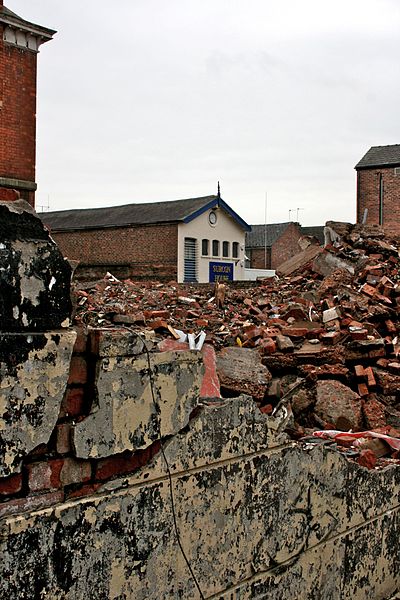
The famous conductor and cellist John Barbirolli, and the actress and pianist Violet Helen Carson, both came to this cinema to play music and enrich a silent movie. With time, the idea of moving pictures, silver screens, and picture houses became the new vogue and gained acceptance. By the 1930s, Manchester had over a hundred such venues.
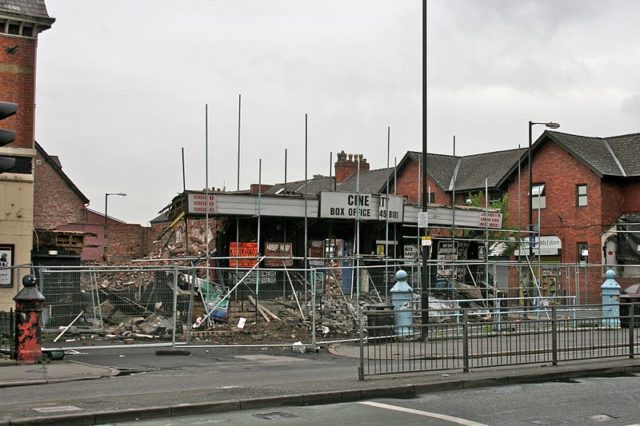
Scala was in the midst of it and people came to relish the latest standards in cinematography, attending shows up to three times a week. However, some people in the community were resistant to the growing popularity of film as a medium.
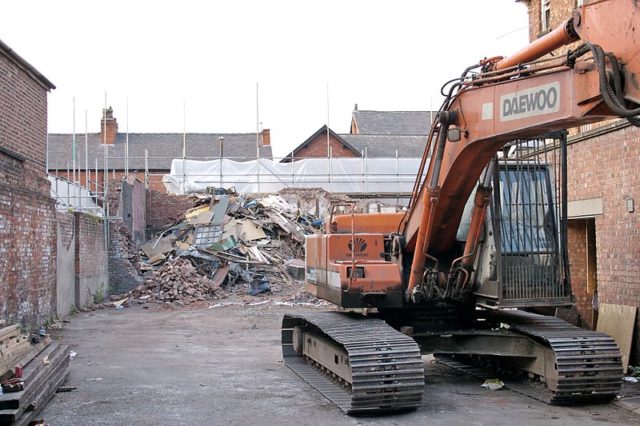
It was dubbed an illness of society and the reason behind the loss of attentiveness in youth; the educators of the days believed that it was harmful to their pupils to spend time in the new movie theaters. The English actor Robert Donat was a regular attendee at Cine City; inspired from an early age, he went on to win an Oscar for his performance in Goodbye, Mr. Chips.
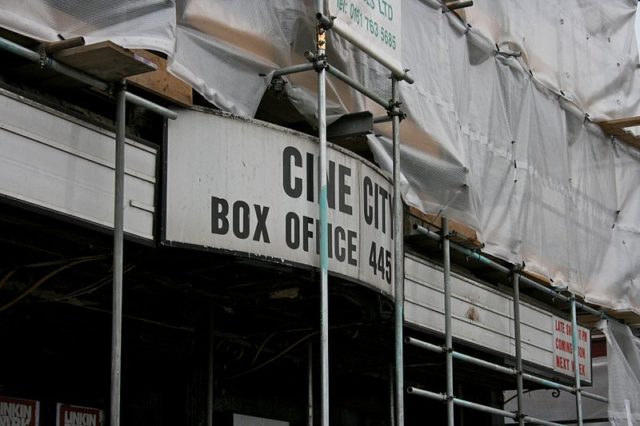
Day in and day out, the cinema managed to satisfy the people of Manchester’s hunger for a good movie. It managed to even survive the Manchester Blitz, a two night long air raid that killed almost 700 people. The cinema slightly was damaged, in the middle of a showing of The Housekeeper’s Daughter, by a bomb that fell in the street right in front of it. Cine City was closed for a brief period until renovation to its façade was done.
But then, after the bombing and killing and setting things of fire ceased and the world was back to being normal again, cinema lost its vigor as “moviegoers” became “TV-watchers,” and by the mid-60s there were only around 40 cinemas still standing in Manchester.
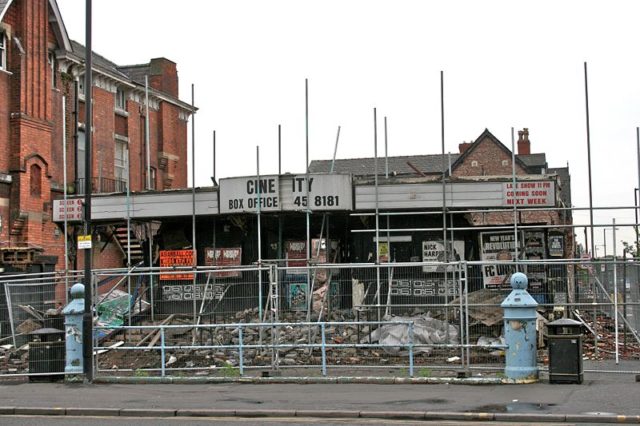
Cine City, suffering with all the pressure the new medium of television was creating, was even further struck when its owner Geoff Henshaw died. This was the first time the cinema was threatened with demolition, though not the last.
It was David Babsky who bought the cinema and kept it afloat until 2001. At the birth of the new millennium, Cine City was utterly slain by the competition of a modern multiplex that opened nearby; the pioneer of silent-movie days was no more.
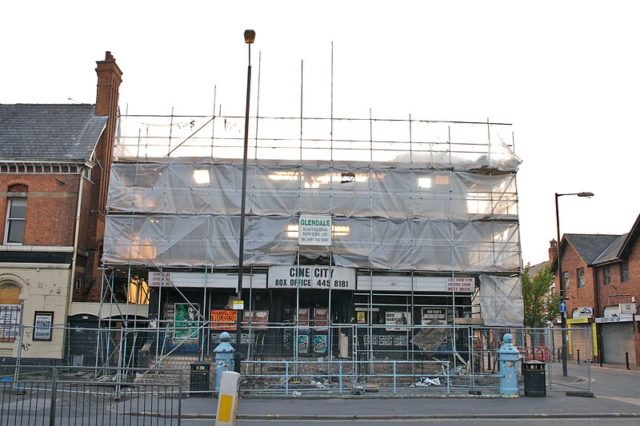
Construction consultants Develop U.K. became the new owners. They made two fruitless efforts to turn this place into a pub but were disallowed by the City Council. The following year, ownership passed to Arrows International, whose proposal to demolish the cinema and build residential units and shops was also overruled.
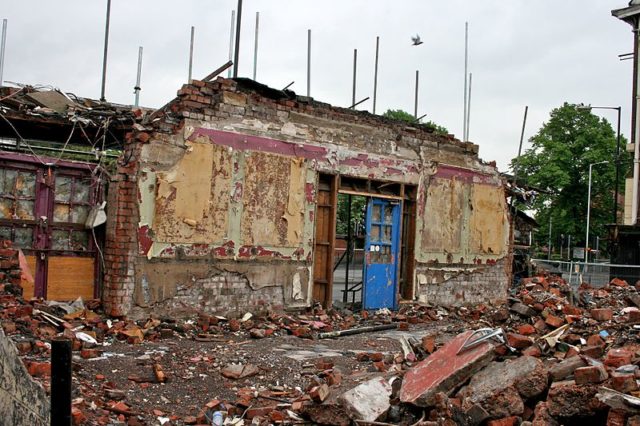
At this point, an initiative was started to save this piece of the history of moving pictures. But the campaign failed when the costs of renovating this building rose to £6 million.
The next owner in line was Mohammad Jamil, another real estate developer. Due to the building’s poor state of repair, permission was finally granted for it’s demolition.
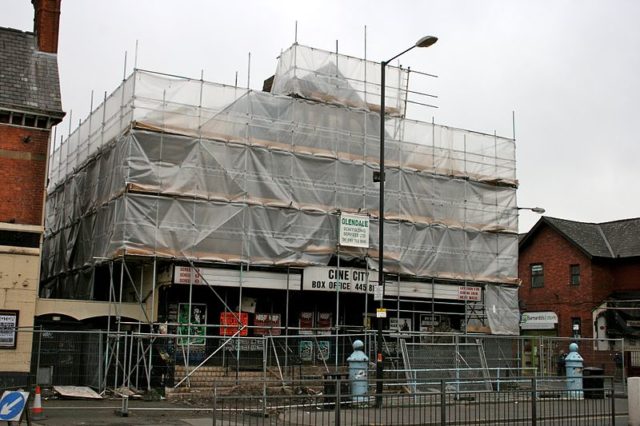
At the start of 2008, initial preparations were taken for knocking down the structure, and a few months later it was completely gone except for some stone piers that were listed as Grade II protected on the National Heritage List for England. Since its flattening, the site remained abandoned and several vacuous proposals for redevelopment were rejected on different grounds.
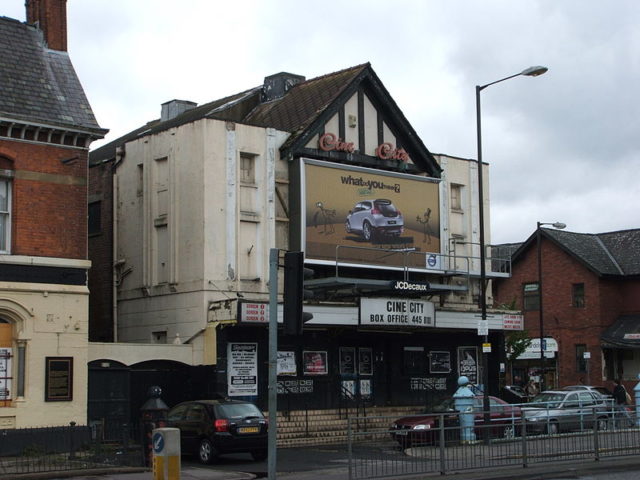
But recently, a proposal by the Britannia Group was accepted and a new four-story apartment block will be born at this site. “The 25 residential dwellings will have just one parking space between them which will be allocated to the City Car scheme” writes the Manchester Evening News in their report about the future of this site: “Cine City site in Withington set to be transformed into flats.”
